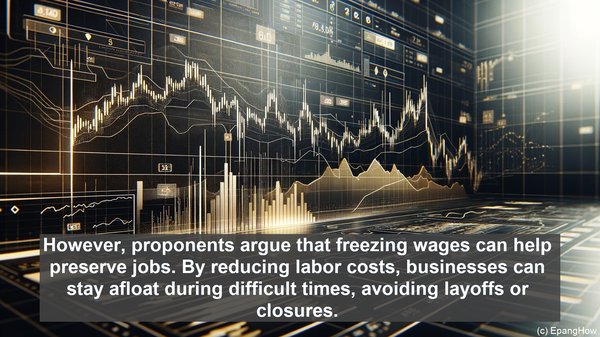Introduction: The Significance of Wage Policies
Hello everyone! Today, we delve into the world of wage policies, specifically focusing on the indexation and freezing of wages. These policies have a profound impact on various aspects of an economy, including employee income, inflation, and overall economic stability. Let’s get started!
Understanding Indexation of Wages
Indexation of wages is a mechanism that links wage increases to a particular economic indicator, often the Consumer Price Index (CPI). The idea behind this policy is to ensure that wages keep pace with inflation. When the CPI rises, wages are adjusted accordingly, maintaining the purchasing power of employees. This approach is often seen as a way to provide a fair and balanced compensation system, as it accounts for the changing cost of living.
The Benefits of Indexation
One of the primary advantages of indexation is that it provides stability for employees. With regular adjustments, their income doesn’t erode over time, and they can maintain their standard of living. Additionally, indexation can act as an automatic stabilizer for the economy. During periods of high inflation, when prices are rising rapidly, indexation ensures that employees have the means to afford essential goods and services, thereby maintaining demand and preventing a sharp economic downturn.
The Challenges of Indexation
While indexation has its merits, it’s not without challenges. One of the main concerns is the potential for a wage-price spiral. If wages increase solely based on inflation, it can lead to a further rise in prices, creating a cycle of inflation. This phenomenon can be particularly problematic if productivity growth doesn’t keep up with wage increases. Additionally, indexation may not be suitable for all sectors or industries, as the inflation rates can vary significantly.
The Concept of Freezing Wages
In contrast to indexation, freezing wages involves a temporary halt in wage increases. This policy is often implemented during periods of economic instability or crisis. The idea is to control costs and prevent further inflationary pressures. Freezing wages can be seen as a short-term measure to restore economic balance and ensure the survival of businesses, especially in times of recession.
The Implications of Wage Freezing
For employees, a wage freeze can be challenging, as it means a stagnant income. This can lead to financial difficulties and a decline in living standards. However, proponents argue that freezing wages can help preserve jobs. By reducing labor costs, businesses can stay afloat during difficult times, avoiding layoffs or closures. It’s a trade-off between short-term sacrifices and long-term stability.

The Role of Wage Policies in Economic Recovery
Both indexation and freezing of wages play a crucial role in economic recovery. While indexation ensures that employees have the means to sustain their purchasing power, freezing wages can provide the necessary breathing space for businesses to recover and eventually resume wage growth. The timing and duration of these policies are critical, as they need to align with the overall economic conditions and objectives.

